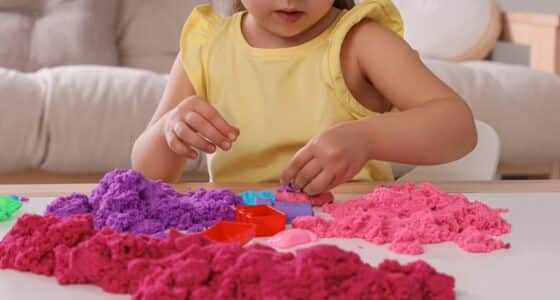Mesothelioma concerns have led consumer protection agencies in both Australia and New Zealand to issue an urgent recall of brightly colored children’s sand products sold at major retailers. Laboratory testing of samples of the educational products found that they contained tremolite asbestos, one of the deadliest types of the toxic mineral. The Australian Competition and Consumer Commission (ACCC) issued the recall for products labeled as Kadink Sand (1.3kg), Educational Colours Rainbow Sand (1.3kg), and Creatistics Coloured Sand (1kg) that were marketed for children’s play and educational purposes in schools and childcare facilities. They were sold throughout Australia and New Zealand between 2020 and 2025.

Mesothelioma Exposure Risk Requires Immediate Product Containment
According to Australian experts, the risk of mesothelioma from exposure to the recalled products means consumers who own them should stop using them immediately and place the sand in a heavy-duty plastic bag, double-tape it securely, and keep it out of reach of children. According to ACCC Deputy Chair Catriona Lowe, when handling the contaminated sand, people should wear disposable gloves and a mask as an abundance of caution.
Authorities concerned about the risk of mesothelioma from the products extending to the general public have urged people not to dispose of the product with their everyday trash: Instead, they are being asked to contact licensed asbestos removalists for safe disposal, and have provided lists of these professionals available on the country’s WorkSafe and Asbestos and Silica Safety and Eradication Agency websites.
Mesothelioma Hazards in Educational Facilities Demand a Specialized Response
There is significant concern about the risk of mesothelioma from contamination at schools and educational facilities. These locations require special attention and specific protocols. The government is instructing these facilities to immediately block off any areas where the sand is currently being used to make sure that no one has access to the space. Educational facilities are being told not to vacuum or sweep floors where the sand is present or to attempt cleaning it up themselves. Instead, they are being advised to contact licensed asbestos assessors and abatement specialists for immediate advice and decontamination services.
Ian Caplin, product safety spokesperson for New Zealand’s Ministry of Business, Innovation and Employment (MBIE), emphasized that authorities in that country are also taking immediate action to identify the extent and risk posed by the potentially contaminated products. Their organization is urging anyone who bought these items for personal or educational use to act immediately by stopping use, containing the sand, and arranging safe disposal through licensed professionals.
Despite the connection between asbestos and mesothelioma having been confirmed decades ago, the risk posed by inclusion of the material in consumer products continues. If you or someone you love has been sickened by exposure to an asbestos-containing product, the Patient Advocates at Mesothelioma.net can help. Contact us today at 1-800-692-8608 to learn more.
